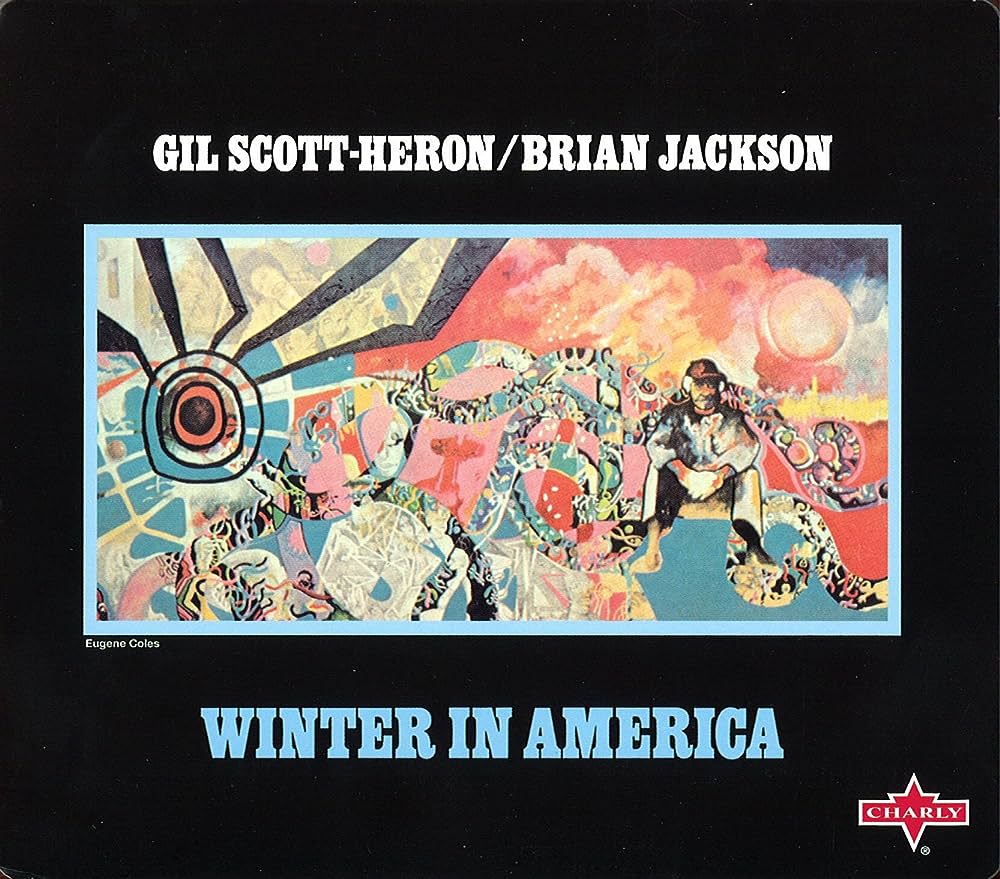For Hanif Abdurraqib’s 68to05, I wrote a personal essay on how Gil Scott Heron’s music soundtracked my experience during the Texas freeze, in the middle of the pre-vaccine era of the pandemic. This essay was a very vulnerable one that made me question: how transparent is too transparent when sharing writing publicly? Still, I’m proud of it and grateful to Hanif for the opportunity.
Read an excerpt below and the full version here.
1974: GIL SCOTT HERON / BRIAN JACKSON, WINTER IN AMERICA
BY SAMA’AN ASHRAWI
Baba is what we call my dad; it’s the familial way to say “father” in Arabic and I hope that’s how you’ll refer to him too. You should know that in Baba’s stash of records there are exactly five by Gil Scott-Heron (some co-credited to Brian Jackson), but only one of those five has coffee stains on the vinyl sleeve: their 1974 album, Winter In America. I can’t quite explain it, but somehow those stains make Gil’s voice singing, “Peace go with you brother,” on the album’s opener sound like he’s in the room with me. As transparent as Baba has been with me, it’s a period of his life I’m still learning so much about. What I know is: the record would have come into his life some time around 1976, four years after his baba passed away, and shortly after he, born a refugee in the basement of a church in Jerusalem, made it to the States from Palestine.
On the inside left panel of the gatefold of Winter In America is a collage. The collage was made by a woman referred to as “Ms. Peggy Harris,” who, as she was working on the collage, begged Gil to give the album a title song. She thought the title was too good to not have a song to go along with it. She was so persistent, in fact, that she continued to pester Gil even after the album came out, so much so that Gil eventually did turn that phrase into a song and included it in his next album titled, The First Minute of a New Day, released in 1975. In the liner notes of that album, he thanked Peggy for being so persistent. Though it never charted, “Winter In America” became one of Gil’s most beloved songs.
You should also know that while Winter In America was the only record encased in a coffee-splattered sleeve, Baba’s copy of The First Minute of a New Day no longer even has a vinyl sleeve; perhaps that one was entirely ruined by coffee, judging by the stains on the inside of the gatefold.
Why so much coffee, Baba? It wasn’t just because he, like Mahmoud Darwish, was enamored by the aroma. Coffee because the situation in Palestine was dire as ever, so Baba dove head first into political organizing. It wasn’t a weekend hobby for him, it was seven days a week. It was many late nights and only some hours slept on the mattress squished into a tiny closet in an uptown apartment. It was meeting after meeting in Washington Square Park. It was also the birth of hip-hop; Baba thought it was enchanting that young Black and brown kids uptown were spinning around on cardboard boxes, although he had no idea how significant those dances would become. He would rock his kuffiyeh, a Palestinian scarf and symbol of the resistance, on his walks and the people of Harlem knew what it meant and allowed him safe passage because of it. He would throw up his fist, and they would flash theirs back. It was comradeship.
Read the full essay here.
